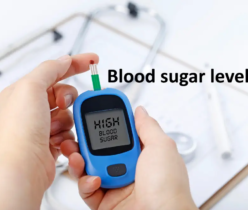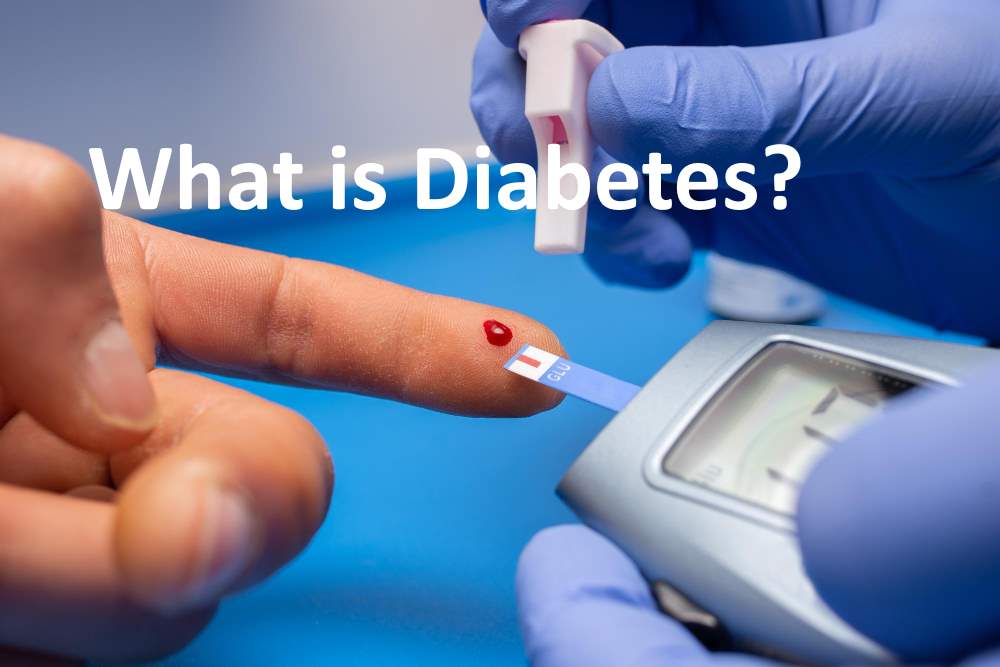Navigating Life with Diabetes involves understanding and managing various aspects of the condition to maintain optimal health and well-being. This article explores crucial topics such as diet, exercise, medication, and emotional support to empower individuals with diabetes to lead fulfilling lives.
Key Takeaways
- Understanding your diabetes diagnosis is crucial for effective management, including learning about insulin dosing and carb counting.
- A balanced diet and regular physical activity are essential for managing blood sugar levels and overall health.
- Advancements in diabetes technology and regular blood glucose testing can significantly enhance treatment accuracy and ease of management.
- Emotional and mental health support is vital in coping with the challenges of living with diabetes.
- Financial planning and understanding insurance options can help manage the costs associated with diabetes care effectively.
Understanding Your Diabetes Diagnosis

Life with Diabetes: Sharing Personal Diagnosis Stories
Many individuals recall the moment of their diabetes diagnosis as a pivotal point in their lives. It’s a time filled with mixed emotions and a steep learning curve. Hearing how others have navigated their initial feelings and the adjustments they’ve made can be incredibly empowering and reassuring.
Navigating insulin dosing and carb counting
Understanding insulin dosing and carbohydrate counting is crucial for effective diabetes management. This involves learning how to measure blood glucose levels, calculate carbohydrate intake, and adjust insulin doses accordingly. It’s a skill that becomes second nature over time with practice and patience.
Dealing with emotional and practical challenges
The journey post-diagnosis is often laden with emotional and practical challenges. Accepting the diagnosis, adjusting to new routines, and managing the impacts on daily life require significant resilience. Support from healthcare professionals, family, and friends is vital in making this transition smoother.
Embracing the reality of diabetes is the first step towards effective management. Educate yourself, attend support groups, and engage with healthcare professionals for valuable insights.
Life with Diabetes: Essential Diabetes Management Techniques

Life with Diabetes: Nutrition and meal planning
Proper nutrition is fundamental to managing diabetes. Clinical guidelines emphasize the importance of weight loss through nutrition and physical activity for type 2 diabetes management. Here are some key dietary considerations:
- Focus on a balanced diet rich in fruits, vegetables, and whole grains.
- Limit intake of sugars and saturated fats.
- Regular meal times help in maintaining stable blood glucose levels.
Life with Diabetes: Physical activity guidelines
Physical activity is crucial in managing blood glucose levels and overall health. Aim for at least 150 minutes of moderate-intensity aerobic activity per week, such as:
- Brisk walking
- Swimming
- Cycling
Incorporate strength training exercises twice a week to enhance muscle strength and insulin sensitivity.
Medication options including insulin and pills
Medications are a key component of diabetes management. It’s essential to take them as directed by your healthcare provider. Adherence to your medication regimen and close monitoring of blood sugar levels are vital for maintaining balance. Discuss any concerns with your healthcare team to ensure optimal treatment and management of your condition.
Life with Diabetes: Advanced Treatment and Monitoring

Blood Glucose Testing Methods
Regular monitoring of blood glucose levels is crucial for effective diabetes management. Testing can be done through traditional finger-prick methods or continuous glucose monitors (CGMs), which provide real-time data and trends. This information is vital for adjusting diet, exercise, and medications to maintain optimal blood sugar levels.
Utilizing Diabetes Devices and Technology
Advancements in technology have significantly improved diabetes care. Devices such as insulin pumps and CGMs offer more precise control over blood glucose levels and can help you identify patterns, make informed decisions about your treatment plan, and prevent episodes of hyperglycemia or hypoglycemia.
The Role of Regular Vaccinations
People with diabetes are at higher risk for infections, making regular vaccinations important. Vaccinations for flu, pneumonia, and hepatitis B are recommended to prevent serious illnesses. It’s essential to discuss your vaccination schedule with your healthcare provider to ensure you are protected throughout the year.
Mental and Emotional Well-being

Coping with diabetes-related stress
Managing stress is crucial in diabetes care. Practice techniques like deep breathing, meditation, or yoga to promote relaxation. Small actions such as going for a walk or staying hydrated can significantly improve your mood and health.
Importance of mental health support
It’s essential to prioritize mental well-being alongside physical health. Support systems, therapy, and self-awareness are vital in navigating these challenges. Remember, taking care of your mental and emotional health is just as important as managing your physical health.
Strategies for managing sick days
On days when you’re not feeling well, it’s important to have strategies in place. Prioritize rest and ensure you are monitoring your blood sugar levels more frequently. Adjust your medication as necessary and stay hydrated to help manage your symptoms.
Lifestyle Adjustments for Diabetes

Life with Diabetes: Weight Management Strategies
Maintaining a healthy weight is crucial for managing diabetes effectively. Weight management can significantly improve blood sugar levels, reduce the risk of cardiovascular disease, and enhance overall health. Consider the following steps:
- Monitor caloric intake and maintain a balanced diet.
- Engage in regular physical activity.
- Consult with a healthcare provider for personalized advice.
Travel Tips for People with Diabetes
Traveling with diabetes requires careful planning to ensure blood sugar levels remain stable. Here are some tips to manage your diabetes while traveling:
- Carry a sufficient supply of medications and supplies.
- Keep snacks on hand to prevent low blood sugar.
- Maintain a travel schedule that allows for regular meal times and medication administration.
Life with Diabetes: Sleep Hygiene for Better Health
Good sleep hygiene is essential for everyone, but it is particularly important for those managing diabetes. Poor sleep can affect blood sugar levels and overall health. To improve sleep hygiene:
- Establish a regular bedtime routine.
- Ensure the sleeping environment is comfortable and conducive to rest.
- Avoid caffeine and heavy meals close to bedtime.
Adopting a healthy lifestyle can help you manage your diabetes. It may also improve your critical health numbers, including weight, blood sugar, blood pressure, and more.
Managing Diabetes in Special Populations

Challenges for diabetes management at age 65+
Managing diabetes effectively becomes increasingly crucial as individuals age, particularly after the age of 65. The body’s ability to regulate blood sugar levels may decline, increasing the risk of complications. Older adults should monitor their blood glucose more frequently and adjust their management plans accordingly.
Dental and oral health considerations
Maintaining optimal oral health is essential for individuals with diabetes, as they are more susceptible to gum disease and other dental issues. Regular dental check-ups and maintaining good oral hygiene can prevent many of these problems.
Navigating diabetes with other chronic conditions
Individuals with diabetes often have to manage multiple chronic conditions simultaneously. This requires a coordinated approach to healthcare, ensuring that treatments for different conditions do not interfere with each other. It’s important to work closely with healthcare providers to create an effective management plan.
Life with Diabetes: Financial Planning for Diabetes Care

Understanding insurance and benefits
Understanding your insurance coverage and benefits is crucial for managing diabetes expenses effectively. This includes knowing what medications, supplies, and services are covered, as well as any out-of-pocket costs. Utilizing generic medications and mail-order pharmacies can often save money.
Saving on medications and supplies
To reduce the cost of diabetes care, consider using generic medications and exploring mail-order pharmacy options. Additionally, buying supplies in bulk and comparing prices across different providers can lead to significant savings.
Seeking financial assistance programs
Seeking out financial assistance programs or patient assistance programs offered by pharmaceutical companies can alleviate some of the financial burdens of diabetes management. These programs often provide medications at a reduced cost or even for free, depending on eligibility.
Conclusion
Living with diabetes demands a comprehensive approach that encompasses diet, exercise, and medication management. As we’ve explored in this article, understanding the nuances of each aspect is crucial for effective diabetes management. From adapting to dietary needs and engaging in regular physical activity to navigating the complexities of medication, each step is vital for maintaining optimal health.
Remember, you are not alone in this journey. There is a wealth of resources and a supportive community available to assist you. Embrace the challenge with resilience and informed choices, and you can lead a fulfilling life despite the hurdles diabetes may present.
Frequently Asked Questions
What are the first steps after receiving a diabetes diagnosis?
The first steps after receiving a diabetes diagnosis include understanding your specific type of diabetes, learning about insulin dosing and carbohydrate counting, and starting to adjust your diet and exercise routines. It’s also crucial to schedule regular follow-ups with your healthcare provider.
How can I effectively manage my diet with diabetes?
Managing your diet with diabetes involves planning balanced meals with a focus on controlling carbohydrate intake, incorporating healthy fats and proteins, and avoiding excessive sugars and processed foods. Utilizing food lists and healthy eating tips can also aid in meal planning.
What physical activities are recommended for people with diabetes?
Physical activities recommended for people with diabetes include aerobic exercises like walking, swimming, or cycling, and strength training exercises. It’s important to start slowly and consult with a healthcare provider to tailor the activity levels to your specific health needs.
What should I know about insulin and other diabetes medications?
Insulin and other diabetes medications are essential for managing blood sugar levels. It’s important to understand different types of insulin, their dosing, and the role of other diabetes pills. Regular consultations with your healthcare provider are crucial to adjust dosages and discuss any side effects.
How can I manage diabetes-related stress and mental health?
Managing diabetes-related stress involves recognizing stress triggers, practicing stress-reduction techniques such as mindfulness or yoga, and seeking mental health support when needed. It’s also beneficial to connect with a supportive community or a counselor experienced in diabetes care.
What financial strategies can help manage the costs of diabetes care?
To manage the costs of diabetes care, understand your insurance coverage, utilize generic medications, and explore patient assistance programs. Additionally, consider mail-order pharmacies for savings on medications and supplies, and seek advice on financial planning specific to healthcare needs.





